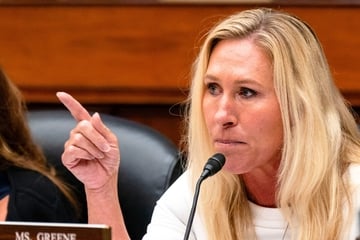Why We Can't Wait: Crunch time for reparations as advocates demand House vote on HR 40
Washington DC - With a historic number of co-sponsors on the reparations bill, racial justice advocates submitted a letter on Friday urging House leadership to bring it to a vote. TAG24 NEWS spoke with several activists behind the campaign to understand Why We Can't Wait to bring HR 40 to the floor.
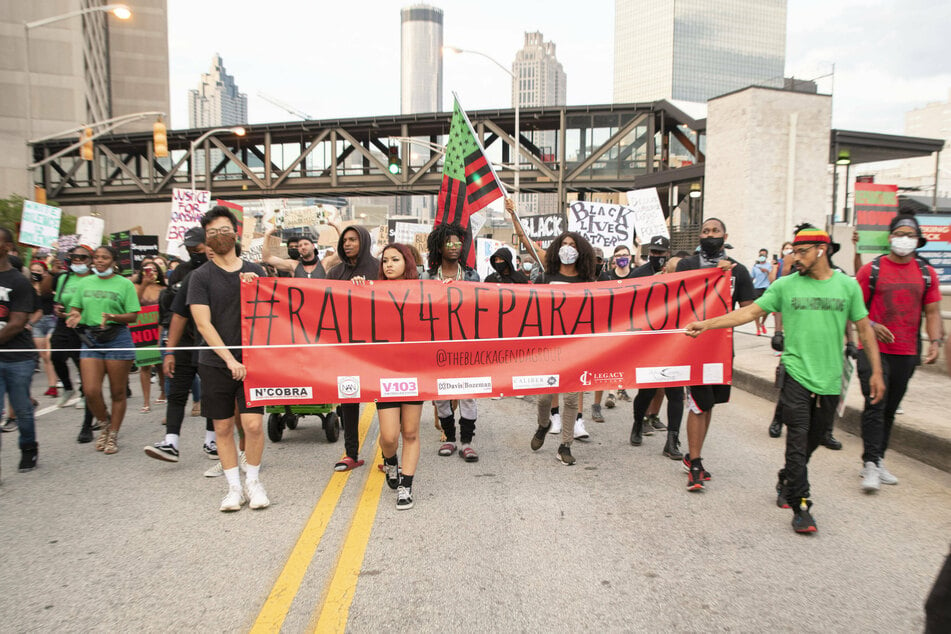
With 196 co-sponsors and additional committed votes, the HR 40 Commission to Study and Develop Reparation Proposals for African-Americans Act has seen record support since it was first proposed by the late Rep. John Conyers in 1989.
The bill would create a commission to study reparations for Black Americans and develop proposals to address the systemic discrimination that started with slavery and continues today.
The bill has been reintroduced every session since it was first put forward, but in April 2021, it received its first-ever vote, with Judiciary Committee members approving it 25-17.
The momentum has been building ever since, and supporters of the bill are confident they have the votes they need for it to pass in the lower chamber.
But though the tides seem to be shifting in favor of reparative justice, HR 40 has yet to receive a full House vote.
Demands to House leadership
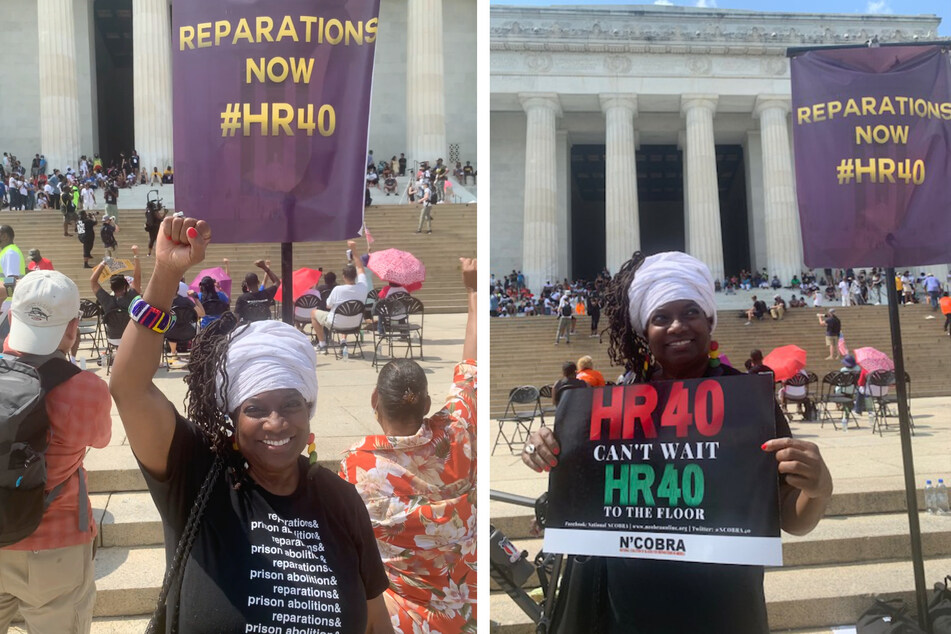
That's why over 360 reparations advocacy groups, human rights organizations, faith and identity-based groups, celebrities, and other actors have signed on to a letter to House Speaker Nancy Pelosi, Majority Leader Steny Hoyer, Majority Whip Jim Clyburn, and Minority Leader Kevin McCarthy – four lawmakers with the power to dictate the legislative agenda.
"The world is waiting to see how the US government makes amends and repairs the harm stemming from slavery, but every year the same message gets sent: Black voters matter, but not Black lives," the letter reads.
"Public policy alone does not address past harm and has never been enough to end contemporary forms of racism, dehumanization, and exclusion," it continues. "Undoing racial injustice and achieving racial healing requires remedy and repair, a principle well established in international human rights law."
"Voters will remember what Congress did and did not do when it had the power to act. It has that power now. It should ask itself: How do we want history to remember us?"
The letter calls on House leadership to bring HR 40 to a full vote immediately.
Nkechi Taifa, a founding member of the National Coalition of Blacks for Reparations in America (N'COBRA) and the National African-American Reparations Commission (NAARC), told TAG24, "We have the votes, but there has not been the political will to advance this to the House floor. There are more co-sponsors than there have ever been in the 30-year history of this bill. I've been there from the very beginning, so I know."
"To continue to delay bringing it to the floor when there's so much support for it doesn't make a whole lot of sense," the author, attorney, and activist added.
"What this letter is trying to do is to show the support there is out there for action."
Origins of the campaign
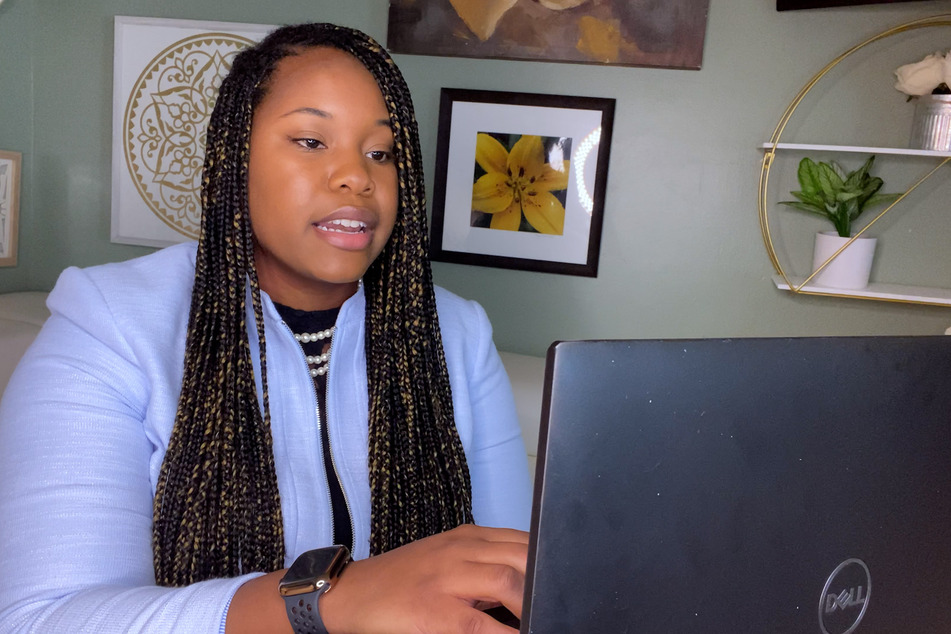
The letter itself was born out of decades' worth of advocacy on the part of numerous organizations and individuals.
Human Rights Watch (HRW) issued its first statement in support of reparations 20 years ago, but their advocacy ramped up after Juneteenth 2019.
The HRW US Program's racial justice researcher Dreisen Heath and Deputy Director Laura Pitter had done a three-year research project on policing in Tulsa, Oklahoma, as well as studied the 1921 Tulsa Race Massacre.
"In doing that report, we realized the issues of policing can't be disconnected from a need for reparations for the 1921 massacre, divestment from Black communities, over-policing in those communities, as well as disparities in health and education," Pitter said.
After that, she, Heath, and their team got involved with advocacy efforts for HR 40, joining forces with activists like Taifa and others who had been in the fight for decades. Together, they began meeting weekly to map out their strategy for getting HR 40 passed.
In the last congressional session, their team of advocates helped win over 173 House co-sponsors – the first time the bill ever garnered more than 50 in any session.
At the start of the current session, they pushed to get those co-sponsors to sign back on to the bill – and convince more lawmakers to do the same.
In the process, they have built a mighty network of multi-ethnic, interfaith allies, dubbed the Why We Can't Wait coalition. Their name comes from a book of the same title published by Martin Luther King, Jr. in 1963. Many of those same groups signed on to Friday's letter.
"What we're still here saying is, we cannot wait any further for justice," Taifa insisted.
The way forward
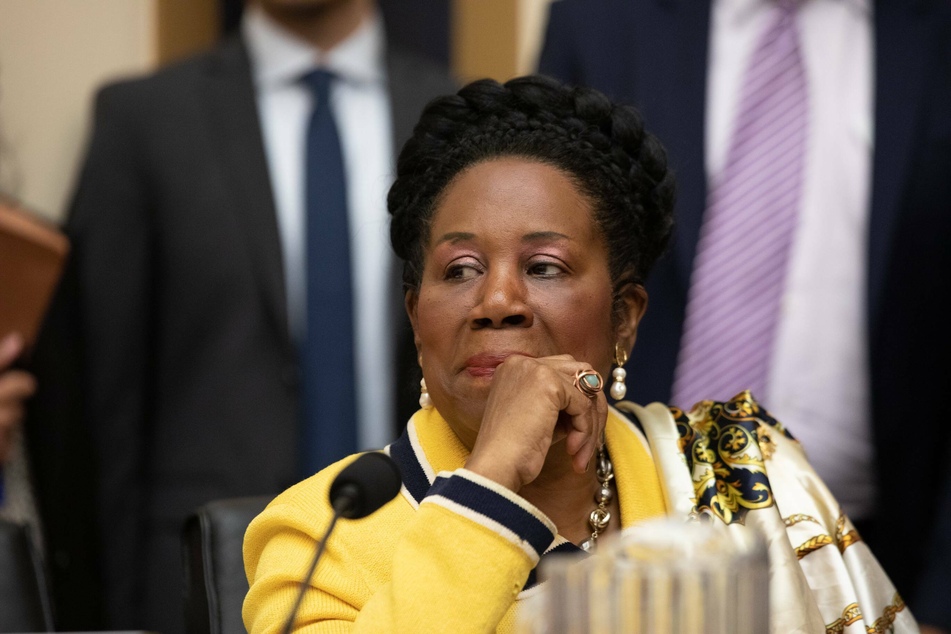
For reparations advocates, time is of the essence when it comes to passing HR 40. The longer the House vote is delayed, the more unlikely that it will pass, especially as the 2022 midterm elections approach.
"I think people are scared of reparations," Taifa explained. "They feel that it's going to hurt prospects in the upcoming elections. I think that those fears are unfounded."
If the bill does not pass this year, advocates will have to begin again in 2023, perhaps without a Democratic majority in the House.
"The clock is going to run out. We have a constellation of stars right now that we have never had and I'm not quite sure that we will have again for a very long time," Taifa said, referring to Democrats having control of the House, Senate, and presidency.
But advocates are under no illusions about the bill's chances in the Senate – at least as long as the filibuster is in place. Their strategy after passing HR 40 in the House is to urge the Biden administration to enact it by executive order.
Activists are also seeking reparative justice at all levels of government and across corporate, religious, and academic institutions.
"The federal government is dragging its feet, but they weren't the only culpable parties," Taifa said. "There is activity going on on all of those fronts in terms of reparations. The federal government should really not be on the back burner. They should be front and center with respect to this issue, and we're trying to make sure that it lives up to its obligation."
For her, it boils down to a simple yet powerful point: "This is an issue whose time has come."
Cover photo: Nkechi Taifa
